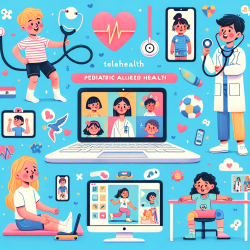Introduction
Adverse Childhood Experiences (ACEs) are traumatic events that occur during childhood and have been linked to numerous negative health outcomes, including depression. As practitioners, understanding the mechanisms that mediate and moderate these relationships is crucial for developing effective interventions. Recent research highlights mindfulness as a significant factor in this context, offering promising pathways for therapeutic practices.
The Role of Mindfulness
Mindfulness, a cognitive resource characterized by present-moment awareness and nonjudgmental acceptance, can mediate the relationship between ACEs and depression. This study explored how mindfulness, particularly the facets of awareness, description, and non-judgement, impacts this relationship. These facets were found to significantly mediate and, in the case of awareness, also moderate the effects of ACEs on depression.
Key Findings
- Mediation: The describe, aware, and non-judgement facets of mindfulness were significant mediators between ACEs and depression, suggesting that enhancing these aspects of mindfulness can reduce depressive symptoms.
- Moderation: The aware facet of mindfulness moderated the relationship, indicating that individuals with high awareness levels did not experience increased depression, even with higher ACEs.
Implications for Practice
These findings underscore the importance of incorporating mindfulness-based interventions (MBIs) in therapeutic settings, particularly for children with a history of ACEs. MBIs can help develop skills in awareness, emotional description, and non-judgement, potentially mitigating the impact of past traumas on mental health.
For practitioners, integrating mindfulness practices into therapy sessions can be a proactive approach to prevent the onset of depression. Encouraging children to engage in mindfulness exercises, such as meditation or mindful breathing, can enhance their emotional regulation and resilience.
Further Research and Application
While the study provides valuable insights, further research is needed to explore these mechanisms in diverse populations and settings. Practitioners are encouraged to stay informed about ongoing research and consider how these findings can be applied in their practice.
To read the original research paper, please follow this link: Mindfulness as a mediator and moderator in the relationship between adverse childhood experiences and depression.










